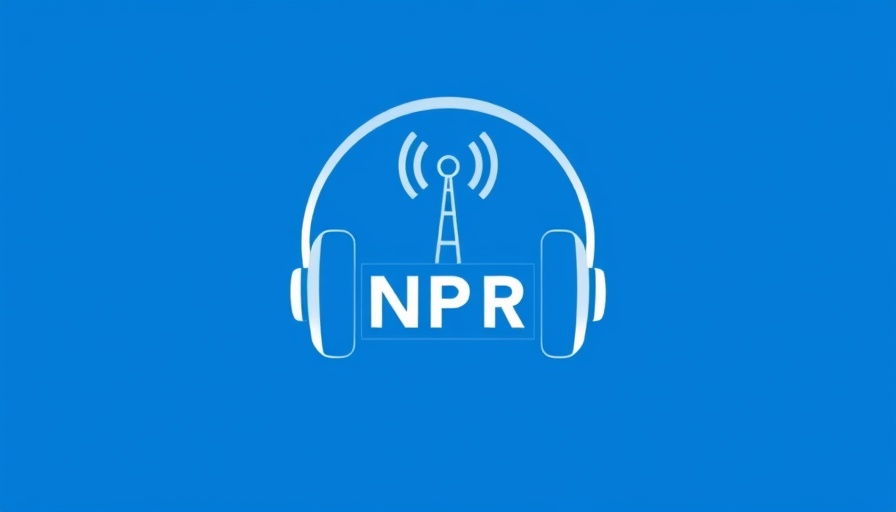
The Pulse of Controversy: RFK Jr.'s Senate Hearing on Vaccines
This past week, the United States witnessed an electrifying Senate hearing featuring Health Secretary Robert F. Kennedy Jr., whose controversial stance on vaccines became a focal point of intense scrutiny and debate. Lawmakers, comprising both Democrats and Republicans, expressed palpable frustration and confusion regarding Kennedy's policies, which many critics have dubbed extremist.
During the session, which lasted an unprecedented three hours, Kennedy found himself on the hot seat. Senator Ben Ray Lujan from New Mexico highlighted the question of Kennedy's trustworthiness, emphasizing a lack of clarity on crucial vaccine-related issues. "Maybe someone should have asked you...are you a trustworthy person?" Lujan questioned, a statement that underscored the significant distrust surrounding Kennedy's vaccine policies.
A Historical Context: Vaccines and Public Perception
The contentious discourse surrounding vaccines is not new; it has deep historical roots. Vaccines have been pivotal in controlling infectious diseases, saving an estimated 154 million lives over the last 50 years globally, as mentioned by Senator John Barrasso during the hearing. Nevertheless, public trust in vaccines has eroded, especially amidst the COVID-19 pandemic. Misinformation and polarized narratives have fueled skepticism and fueled divisive public reactions.
Kennedy's rise to notoriety within this narrative reflects a broader societal struggle to reconcile scientific information with personal beliefs and political ideology. His defiance in the hearing showcased a trend that has gained momentum in recent years: the rejection of established scientific consensus by influential public figures may resonate with segments of the population, contributing to increased vaccine hesitancy.
The Emotional Landscape: How Citizens Respond to Vaccine Policies
This week's events not only highlight the political confrontation between Kennedy and senators but also delve into the emotional responses that citizens have regarding vaccines. Many feel a sense of frustration and confusion, as legislative discussions seem more charged than ever. Social media serves as a landscape for discussing these events, with citizens echoing sentiments of anger, confusion, and disillusionment. Some even applaud Kennedy for bringing these uncomfortable discussions into the public eye.
Given this emotional and social climate, businesses and organizations operating within health tech and marketing industries must recognize the impact of public perception on their strategies. Understanding the emotional rhetoric surrounding vaccine discussions enables businesses to tailor their messaging and outreach effectively. This understanding can provide significant advantages in a landscape often characterized by misinformation.
Counterarguments and Diverse Perspectives in Vaccine Discourse
The hearing reflected starkly divided opinions on vaccines. Proponents emphasize the safety and efficacy of vaccines as proven public health measures, while opponents, often led by figures like Kennedy, contend that there are risks involved that are not being thoroughly investigated by regulatory bodies. As a society, we must consider the validity of all perspectives. Empowering that conversation requires transparency from lawmakers and scientific bodies, ensuring that diverse voices contribute to the narrative, rather than narrowing it down to polar extremes.
Future Predictions: The Path Ahead for Vaccines in America
Looking forward, it is clear that the landscape of vaccine policy and public opinion is shifting. As technology continues to evolve, the health tech industry must play a pivotal role in educating the public about vaccine efficacy and safety. Industry leaders, including CEOs and marketing professionals, must prioritize transparency and community engagement to foster trust and mitigate negativity.
In addition to direct communication from public health officials, businesses should consider innovative strategies to engage citizens on health issues. Using social media platforms to relay scientific information, backed by credible sources, is one approach that can break through the noise of misinformation.
Taking Action: What CEOs and Marketers Can Do
The current climate presents immense opportunities for CEOs, marketing managers, and health organizations to step up. Understanding the complexity of public sentiment can inform practical, thoughtful strategies that resonate with target audiences. Implementing educational campaigns focusing on vaccine benefits and dispelling myths serves not only to protect public health but also aligns with consumer demand for transparency and trust.
Being proactive and leading discussions will enhance a business's brand, instilling confidence and integrity in an era where such traits are paramount. Companies can establish themselves as thought leaders within the health tech sphere by addressing these issues directly and adopting a narrative that emphasizes collaboration, scientific integrity, and community.
As we witness the evolution of public health discussions, it becomes imperative for businesses to stay ahead of trends, utilizing insights gathered from events like the recent Senate hearing. Capitalizing on opportunities to educate and engage will not only strengthen public trust but also benefit the industry as a whole.
 Add Row
Add Row  Add
Add 




Write A Comment